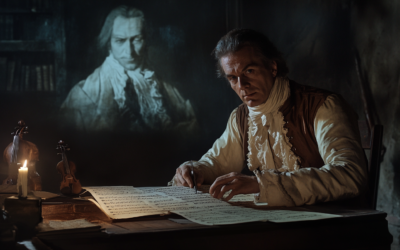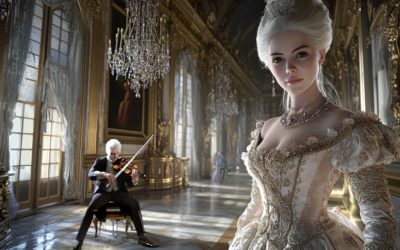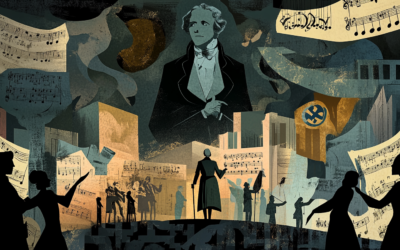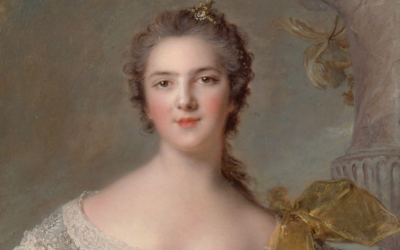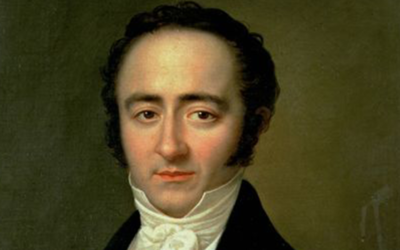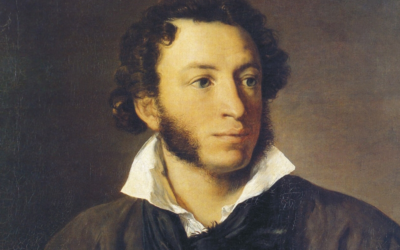The Kolb Concerto
A Mozartian Mirage?
The Kolb Concerto is more than just another questionable addition to Mozart’s repertoire; it’s a prime example of how music history is often rewritten to suit commercial interests. With two conflicting versions, neither matching Mozart’s known style or instrumentation practices, the concerto has been a subject of scholarly debate for over a century. From Ernest Hess’s early criticism to the recent re-evaluation by Christoph-Hellmut Mahling, it’s clear that this piece does not fit within the Mozart canon. Instead, it appears to be a product of 19th-century French pedagogical traditions, misattributed to Mozart for the sake of bolstering his catalogue. Given the inconsistencies in style, structure, and instrumentation, it is time to reconsider what we accept as “authentically Mozart” and to question whether the so-called “Viennese Classical style” is more of a myth than a reality.
Mozart: The Fall of the Gods
This book compiles the results of our studies on 18th-century music and Mozart, who has been revered for over two centuries as a deity. We dismantle the baseless cult of Mozart and strip away the clichés that falsely present him as a natural genius, revealing the contradictions in conventional biographies. In this work, divided into two parts, we identify and critically analyze several contradictory points in the vast Mozart bibliography. Each of the nearly 2,000 citations is meticulously sourced, allowing readers to verify the findings. This critical biography of Mozart emerges from these premises, addressing the numerous doubts raised by researchers.
"If this is what passes for Mozart’s genius, then perhaps we’ve been deceived all along."
Mozart: The Fall of the Gods
When discussing the so-called Kolb Concerto in D major (K6 271a), one cannot help but notice the echoes of past debates surrounding other dubious works attributed to Mozart. Much like the infamous sixth concerto, this piece is a puzzle—poorly crafted counterpoint, weak harmonies, and an overall lacklustre musical quality suggest Mozart’s involvement was minimal, if at all. Some claim he only composed the more successful sections, but even these are far from convincing.
The authenticity of the Kolb Concerto has been questioned for over a century. Ernest Hess noted its numerous compositional errors, uncharacteristic phrasing, and unconvincing orchestration, all of which undermine the attribution to Mozart. Strangely, this seventh concerto exists in two versions: the full score from Aloys Fuchs’s collection at the Prussian Library in Berlin, and the separate parts copied by Eugène Sauzay in Paris in 1837. The sources do not align, and the original manuscript by Wolfgang is nowhere to be found, yet it was published under Mozart’s name in 1907. For decades, scholars clung to imaginative theories, desperately trying to place the concerto within Mozart’s timeline, until it was finally revealed as a forgery.
The likes of Georges De Saint-Foix and Yehudi Menuhin held onto the belief that the concerto had some connection to Mozart, while others, such as Alfred Einstein, suggested that it might merely be a sketch, with later composers filling in the gaps. Still, the inconsistencies pile up: the violin remains too high in pitch, excessive pizzicatos disrupt the slow movement, and strange tenth intervals appear in cadenzas supposedly added in the 19th century.
Even the title “Kolb” has no basis in reality. Several amateur violinists bore that name, but none can be conclusively linked to this work. In 1963, Carl Bär speculated that the concerto might be related to an entry in Joachim von Schiedenhofen’s diary from 1777. However, his assumptions rest on shaky ground, as details about Kolb are scant and confused.
By 1978, Christoph-Hellmut Mahling proposed that Mozart may have merely copied the concerto for personal use, lifting it from another contemporary composer. Subsequent studies dismissed Mozart’s authorship, linking the concerto instead to French styles, such as those of Kreutzer and Baillot, suggesting it was a teaching tool rather than an original work by Mozart. Mahling’s findings reinforced the notion that the concerto’s structure and features align more with early 19th-century French conservatory exercises than with Mozart’s authentic output.
In truth, the Kolb Concerto is likely a commercial product, packaged as Mozart’s to enhance its market appeal. Today, it is still performed under his name, despite mounting evidence against its authenticity. This should lead us to question the very concept of the so-called “Viennese Classical style.” Is it truly a coherent, historically grounded genre, or merely another construct shaped by politics and commerce?
You May Also Like
The Questionable Origins of Mozart’s Violin Concertos
Are Mozart’s violin concertos truly original? This article explores the possibility that the Czech composer Josef Mysliveček played a far larger role in their creation than previously acknowledged.
The Adélaïde Deception: Mozart’s “Lost” Violin Concerto and the Art of Musical Forgery
In the early 20th century, the “discovery” of Mozart’s sixth violin concerto in Paris created a sensation. Dubbed the Adélaïde Concerto and supposedly written for Madame Adélaïde of France, it was hailed as a testament to Mozart’s genius. However, as the story unfolds, it becomes clear that this masterpiece was not the work of the child prodigy but rather a carefully orchestrated hoax by Marius Casadesus. Despite its unmasking as a forgery, the concerto continues to captivate audiences, raising questions about authenticity and the music industry’s willingness to deceive for profit.
Mozart and the Nationalist Illusion: The 1931 Festival and Its Legacy
The Salzburg Festival, far from being a mere celebration of Mozart’s genius, was born out of nationalist ambitions during a turbulent period in Austro-German history. Conceived by figures like Max Reinhardt, Heinrich Damisch, and Friedrich Gehmacher, the festival was deeply rooted in ultranationalistic ideals, transforming Mozart’s legacy into a tool for cultural dominance. The truth behind its founding has long been obscured, but the primary sources tell a different, darker story.
K.6 and K.7 Sonatas: A Fabricated Genius?
The earliest sonatas of Wolfgang Amadeus Mozart, K.6 and K.7, are traditionally seen as proof of his precocious genius. But as we explore the murky origins of these works, we find that they may be more a product of Leopold Mozart’s ambition than Wolfgang’s musical talent. The truth, as always, lies somewhere between the notes.
Georg Nissen and the Missing Notebooks – Part II
This second part delves deeper into Georg Nissen’s scheme to expose the truth about Mozart’s death, and the roles of Constanze Mozart and her sons in keeping it buried. As new details emerge, the mystery surrounding the famous composer’s final days grows even darker, with powerful forces potentially at play.
Mozart and Salieri
Pushkin does not see Salieri as a mere mediocre. In fact, Salieri embodies the struggle of the artist, much like Michelangelo, who reaches greatness through relentless effort. Pushkin himself identifies with both Mozart and Salieri, but he emphasises that true art demands work, discipline, and sacrifice. In poisoning the Mozartian element within himself, Salieri performs a service to art, freeing it from the frivolity of effortless genius. ‘Can genius and malice coexist?’ Pushkin’s answer is complex, but in the end, Salieri’s act seems to affirm that true creation lies in the hands of those who strive.


